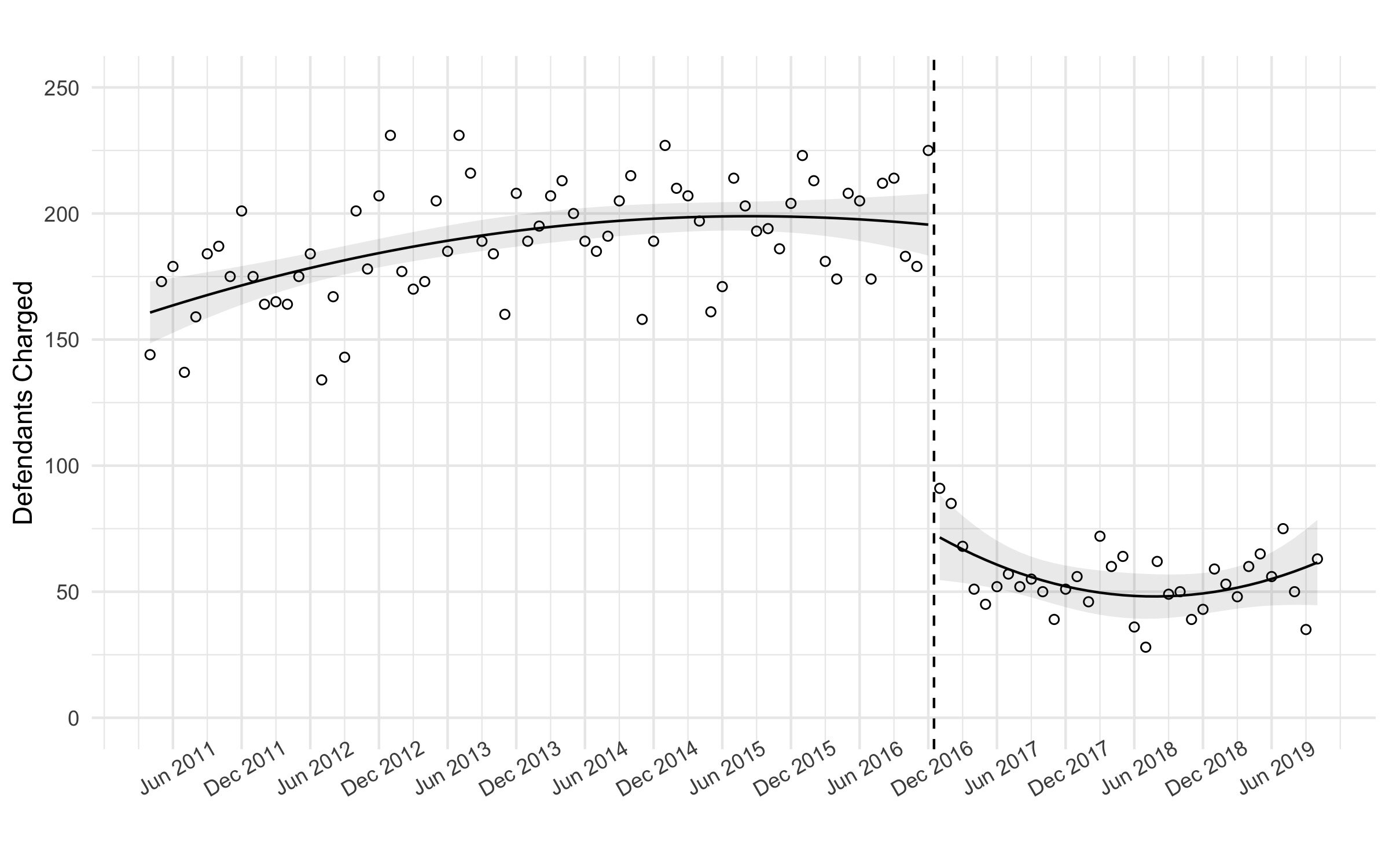Police and prosecutors wield enormous power on behalf of the state. Both have the authority to surveil, search, interrogate, arrest, detain, imprison— and even kill. Theoretically, this authority is justified as necessary to protect vulnerable members of our society. In practice, however, law enforcement often serves pernicious racial, economic and gender hierarchies. Under what conditions is the authority of criminal law enforcement democratically legitimate? Can these conditions be achieved through incremental reform or do they require entirely new institutions? These problems are the core themes of my research career.
Academia
The following projects have been funded by the National Institute of Justice (2018-19) and the Social Science and Humanities Research Council of Canada (2014-18).
“The Impact of Charging Reform on Crime and Punishment,” under review.
“Racial Disparity in ‘Broken Windows’ Pretrial Detention,” under review.
“Testimonial Evidence and Delay in Domestic Battery Cases,” work in progress.
“The Absolute and Relative Impact of Felony Labeling on Recidivism,” work in progress.
Law & Government
I have also put my academic training to good use outside the classroom. After earning a Master of Legal Studies from the University of Chicago Law School, I worked at the Cook County State’s Attorney’s Office: first in Central Bond Court, where I screened arrests for diversion programs; and then in the newly-formed CCSAO Data Team, where I conducted quantitative data management and analysis. I have also worked at the Vera Institute of Justice as well as the Cook County Public Defender’s Office. Taken together, these experiences have exposed me to practical perspectives and structural constraints relevant to my research problems.


